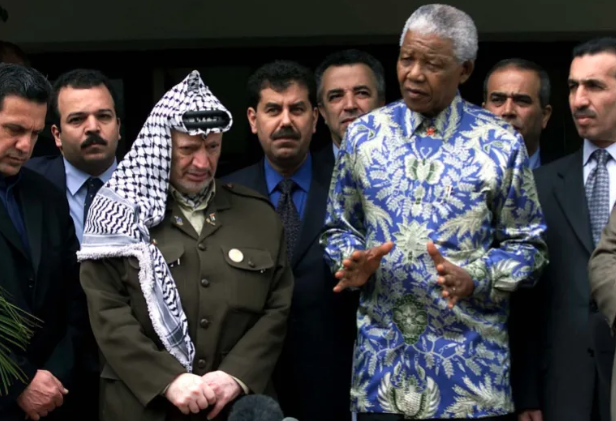Uncategorized
Africa’s Rift: Israel War Influence & Allegiances

Amidst the cacophony of ancient hostilities and the chessboard of present-day international politics, Africa stands at the crossroads, its pulse quickening with the reverberations of the Israel war. As rockets trace their lethal arcs across the firmaments of southern Israel and Gaza, African nations are tugged between an enduring empathy for the Palestinian plight and the compelling lure of Israeli technological and defense prowess. This dichotomy is starkly reflected in the divergent stances of African leaders—with Kenya’s President William Ruto endorsing Israel, and South Africa’s firm reproach of its actions, the continent’s heart appears bifurcated. The unfolding events in the Middle East are not merely a distant conflict for Africa but a mirror reflecting its own struggle with the ghosts of colonialism and the quest for a strategic stance that could redefine its place on the global stage.
The tendrils of history reach far and entangle the present in complex ways. For decades, Africa, emerging from the shackles of colonial exploitation, found a kinship with Palestine, another land familiar with the bitterness of displacement. Memories of the 1973 October War and the severing of ties by the then Organisation of African Unity (OAU) with Israel resonate in the diplomatic halls across the continent. Yet, beneath the sediment of history, new layers are forming. Israel has fostered connections with African nations, leveraging agricultural expertise, military assistance, and cutting-edge technology to redraw the geopolitical map—a testament to the dynamic and often unforgiving nature of international politics.
The voices from Africa regarding the Israeli-Palestinian conflict are far from uniform, echoing a wide array of histories and philosophies that stretch across the continent’s vast expanse. Algeria’s vocal endorsement of the Palestinian cause resonates with its own narrative of liberation from French colonial dominion, embodying a solidarity rooted in shared struggles.
In the claustrophobic alleys of Gaza, where fear and grief are as tangible as the rubble underfoot, the views are starkly polarized by the immediacy of suffering and the echoes of Israeli retaliation. Social media serves as a digital canvas for these scenes of devastation, bringing distant agonies into intimate focus and amplifying the visceral response that transcends geographical bounds.
Yet, it’s not solely emotional or religious affiliations shaping African stances. The perspectives are nuanced, with some governments and individuals advocating for a measured analysis of Hamas’ actions, which have been designated as terrorist by several countries including Israel, the United States, and the European Union, while others focus on the humanitarian aspects of the plight of Palestinians.
Amidst this cacophony of viewpoints, individual narratives of resilience and despair emerge, painting a multifaceted portrait of a human condition caught in the throes of an enduring conflict. The environment as narrated by those who inhabit it bears silent witness to the altered realities of life amidst strife, and within these stories, the indomitable spirit of the people as they navigate their transformed surroundings speaks volumes of their enduring adaptability and resourcefulness.
Africa’s varied responses to the Israel-Gaza conflict can be seen as a barometer of each nation’s attempt to navigate a complex matrix of interests. The continent’s strategic tilt towards Israel in some quarters does not merely reflect changing diplomatic winds but underscores a pragmatic pursuit of agricultural innovation and security partnerships essential for their survival and sovereignty. These are not choices made in a vacuum but in the loud, cacophonous arena of international pressure and local imperatives.
Yet, one cannot help but probe the sincerity of the stances taken. The political machinations that drive nations like Kenya and Zambia to side with Israel, or South Africa and Algeria to uphold Palestine’s cause, raise questions about the consistency of African foreign policy. Are these positions born of genuine solidarity, or are they cloaked in the garb of political expediency, influenced by economic incentives and strategic gains? The narrative woven by African leaders often conceals a web of competing interests and under-the-table diplomacy.
Through the smoky haze of Gaza’s bombed streets, one can almost see the shifting sands of the Sahara—reminders of a continent in perpetual motion. The lush fields of Kenya benefiting from Israeli agricultural tech starkly contrast with the fervent protests in the streets of Johannesburg, decrying Israel’s actions. These scenes are emblematic of a continent rich in diversity, yet fragmented by the geopolitical fault lines that run deep beneath its surface.
As the death toll rises and the rubble of Gaza’s infrastructure mounts, the stance of African nations on the Israel-Gaza war remains a tapestry of contrast, rich with historical context yet fraught with contemporary complexity. It’s a narrative torn between past allegiances and future aspirations, with each decision casting long shadows over the continent’s place in the global order. Whether these divides herald a new chapter of alignment or a mere continuation of old rivalries played on a new field remains an open question—one that will undoubtedly shape the contours of Africa’s international relations for years to come.












You must be logged in to post a comment Login